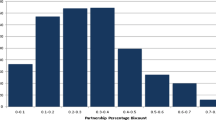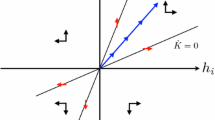Abstract
Governmental entities at all levels are empowered to acquire private property for the public's benefit, provided that “just compensation” is paid. The level of compensation typically viewed by courts as “just” is market value, but questions arise as to whether market value compensation motivates the private owner of land, potentially subject to a taking, to improve the property to a degree that is socially efficient. Earlier works have found market value to be a compensation level too high to promote efficiency. The present paper offers an analysis, based on a simple model of investor profit maximization, that provides a unified view of models presented in some important earlier works. In a special application of the general case, it is shown that market value can be too low a level of compensation to promote efficient behavior by the land owner.
Similar content being viewed by others
References
Alchian, A., and H. Demsetz. “The Property Rights Paradigm.” Journal of Economic History 33 (March 1973): 16–27.
Blume, L., and D.L. Rubinfeld. “Compensation for Takings: An Economic Analysis.” California Law Review 72 (July 1984): 569–628.
Blume, L., D.L. Rubinfeld, and P. Shapiro. “The Taking of Land: When Should Compensation Be Paid?” Quarterly Journal of Economics 99 (February 1984): 71–92.
Callies, D.L., and R.H. Freilich. Cases and Materials on Land Use. St. Paul, MN: West Publishing Company (1986).
Colwell, P.F. “Privatization of Assessment, Zoning, and Eminent Domain.” ORER Letter 4 (Spring 1990), 4–7.
Cooter, R., and T. Ulen. “The Public Use of Private Property.” Unpublished manuscript, University of Illinois, 1992.
Cunningham, R.A. “Inverse Condemnation as a Remedy for ‘Regulatory Takings.’” Hastings Constitutional Law Quarterly 8 (Spring 1981): 517–544.
Epstein, R. Takings: Private Property and the Power of Eminent Domain. Cambridge, MA: Harvard University Press (1985).
Farber, D.A. “Economic Analysis and Just Compensation.” International Review of Law and Economics 12 (June 1992): 125–138.
Fischel, W.A. “The Offer/Ask Disparity and Just Compensation for Takings.” Unpublished working paper, Dartmouth College, 1993.
Fischel, W.A., and P. Shapiro. “Takings, Insurance, and Michelman: Comments on Economic Interpretations of ‘Just Compensation’ Law.” Journal of Legal Studies 27 (June 1988): 269–293.
Fischel, W.A., and P. Shapiro. “A Constitutional Choice Model of Compensation for Takings.” International Review of Law and Economics 9 (December 1989): 115–128.
“Governmental Actions and Interference with Constitutionally Protected Property Rights.” Executive Order 12630 of March 15, 1988. Federal Register 53 (March 18, 1988): 8859–8862.
Kanner, G. “Condemnation Blight: Just How Just Is Just Compensation?” Notre Dame Lawyer 48 (April 1973): 765–810.
Knetsch, J.L., and T.E. Borcherding. “Expropriation of Private Property and the Basis for Compensation.” University of Toronto Law Journal 29 (Summer 1979): 237–252.
Mandelker, D.R. “Land Use Takings: The Compensation Issue.” Hastings Constitutional Law Quarterly 8 (Spring 1981): 491–516.
Miceli, T.J. “Compensation for the Taking of Land Under Eminent Domain.” Journal of Institutional and Theoretical Economics 147 (June 1991): 354–363.
Michelman, F.J. “Property, Utility, and Fairness: Comments on the Ethical Foundations of ‘Just Compensation’ Law.” Harvard Law Review 80 (April 1967): 1165–1258.
Munneke, H.J. “Eminent Domain: Lessons from the Past.” ORER Letter 5 (Spring 1991): 1–4.
Munzer, S.R. A Theory of Property. New York: Cambridge University Press (1990).
Pollot, M.L. Grand Theft and Petit Larceny: Property Rights in America. San Francisco: Pacific Research Institute for Public Policy (1993).
Sax, J.L. “Takings, Private Property and Public Rights.” The Yale Law Journal 81 (December 1971): 149–186.
Thompson, B.H., Jr. “A Comment on Economic Analysis and Just Compensation.” International Review of Law and Economics 12 (June 1992): 141–144.
Tollison, R.D. “A Comment on Economic Analysis and Just Compensation.” International Review of Law and Economics 12 (June 1992): 139–140.
Author information
Authors and Affiliations
Rights and permissions
About this article
Cite this article
Trefzger, J.W., Colwell, P.F. Investor efficiency in the face of takings. J Real Estate Finan Econ 12, 23–35 (1996). https://doi.org/10.1007/BF00127764
Issue Date:
DOI: https://doi.org/10.1007/BF00127764




